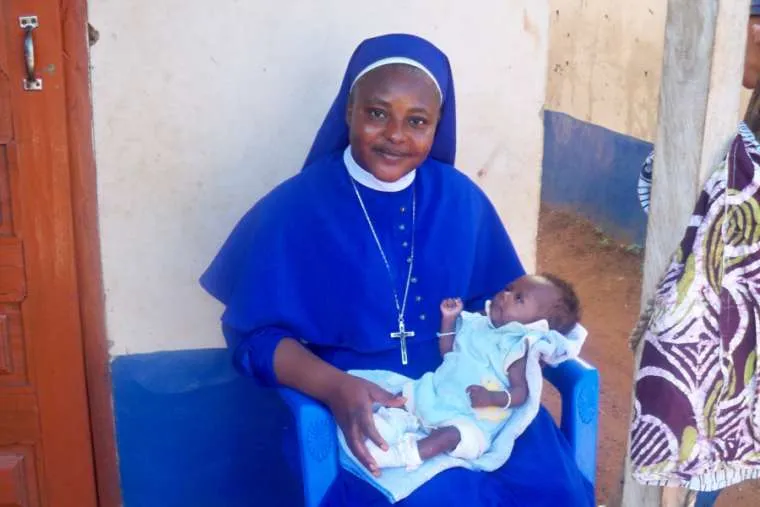“Unfortunately one of our communities in Bergamo got infected at the very beginning of the coronavirus emergency, and we started receiving very bad news from the community,” Sister Alicia said at the symposium.
“And several young sisters, several of us nurses, we volunteered to go and reach them and to help them.”
Once she arrived in the town of Bergamo, located in Lombardy, the epicenter of Italy’s coronavirus outbreak, Sister Alicia said that the Comboni motherhouse “was in real chaos” because “everybody was sick.”
She estimated that 45 sisters of the 55 living in Bergamo were ill. Ten Comboni sisters from her community died during the outbreak.
“It has been a very powerful experience to live from inside the suffering of the people in Bergamo,” she said, adding that it has been an experience of Christ’s Passion.
(Story continues below)
“As a Comboni sister, I think it has been only a privilege … sharing with people’s lives, with people’s sufferings,” she said, calling it a “gift from God for the whole congregation.”
Sister Alicia, who is now back at the convent in Jerusalem, said that the coronavirus pandemic is not over and “the situation is very worrying” for many sisters in other parts of the world.
The World Health Organization reported June 22 the largest single-day increase in coronavirus cases, with more than 183,000 new infections documented worldwide in 24 hours.
Sister Alicia said: “I have been in contact with many sisters working in places like Jordan ... in South Sudan, in Chad, in Ecuador, and I can see the sisters exposed to many risks with no equipment at all. They don't work in many cases in government hospitals. They don't have access to tests. So they are receiving suspected cases and patients without any possibility of protecting themselves.”
“For many other sisters who are not working in medical issues, they have to face this explosion ... of poverty and social crisis, and many sisters ... are dealing with starvation,” she added.
Callista Gingrich, the U.S. Ambassador to the Holy See, said that the coronavirus pandemic “has caused vast unemployment, poverty, and food insecurity -- further challenging the work of women religious.”
“I want to take a moment to recognize and honor the tremendous sacrifices made by women religious during this pandemic,” she said. “Here in Italy, and around the world, many faithful sisters have made the ultimate sacrifice while caring for others. As we continue our work together, let us preserve and honor their memory.”
Courtney Mares is a Rome Correspondent for Catholic News Agency. A graduate of Harvard University, she has reported from news bureaus on three continents and was awarded the Gardner Fellowship for her work with North Korean refugees.








